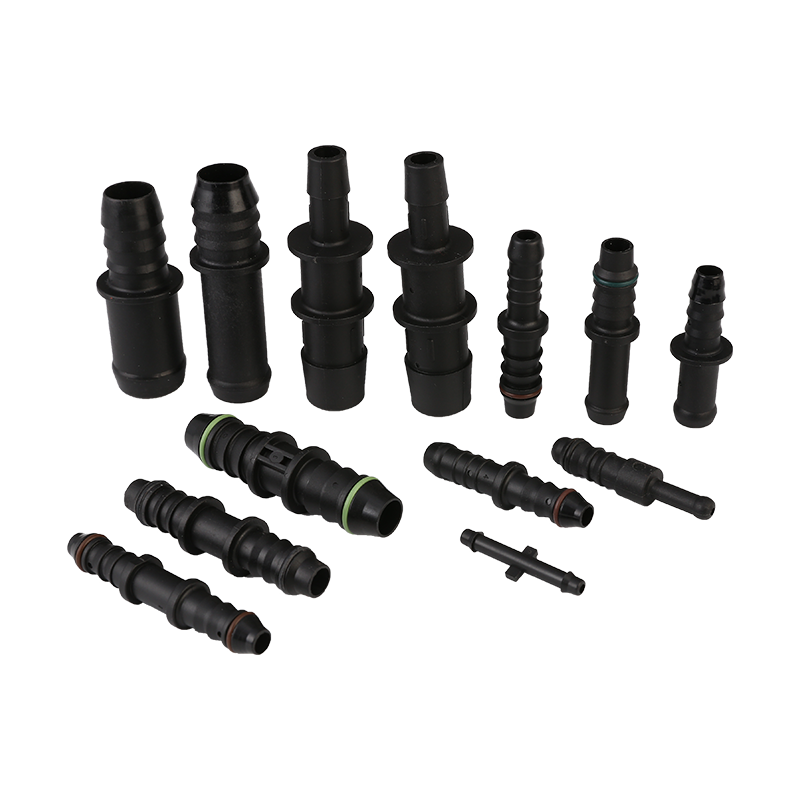Understanding The Role Of Automotive Fuel Pipe Fittings In Vehicle Performance
Automotive Fuel Line Connectors Pipe Fittings Manufacturer
Automotive fuel pipe fittings are essential components in the fuel system of modern vehicles, playing a crucial role in ensuring the efficient flow of fuel from the tank to the engine. These fittings, often overlooked in discussions about automotive technology, have a significant impact on the vehicle's overall performance. In this article, we will explore the importance of automotive fuel pipe fittings, how they contribute to vehicle performance, and why their selection and maintenance are vital for maintaining the vehicle's health and functionality.
At their core, automotive fuel pipe fittings connect the various parts of the fuel system. These include the fuel tank, fuel lines, fuel pumps, and fuel injectors. The primary function of these fittings is to ensure a tight, leak-free connection between the fuel pipes, allowing for the smooth flow of fuel. Any malfunction or failure in the fuel pipe fittings can advance to fuel leakage, which not only reduces fuel efficiency but can also cause significant safety hazards.
One of the primary reasons automotive fuel pipe fittings are so important is their role in maintaining fuel pressure. The fuel system in modern vehicles relies on constant pressure to deliver fuel to the engine. Automotive fuel pipe fittings help regulate this pressure by ensuring that the fuel lines are securely connected and that there is no disruption in the flow of fuel. If these fittings are damaged or improperly installed, the fuel pressure can drop, causing the engine to misfire, stall, or perform inefficiently. This can result in decreased fuel efficiency, higher emissions, and poor engine performance.
Another critical function of automotive fuel pipe fittings is their contribution to fuel efficiency. Fuel leaks, which are often caused by faulty or worn-out fuel pipe fittings, advance to a loss of fuel, reducing the vehicle's overall efficiency. In some cases, even minor leaks can cause a noticeable decrease in fuel economy. This makes it essential to ensure that automotive fuel pipe fittings are properly installed, maintained, and replaced when necessary. Regular inspection of fuel pipe fittings can help prevent fuel waste, improve fuel economy, and lower the cost of ownership over time.
In addition to fuel efficiency, automotive fuel pipe fittings play a crucial role in controlling vehicle emissions. A poorly sealed or damaged fuel pipe fitting can advance to the release of harmful fuel vapors into the atmosphere, contributing to air pollution. Many modern vehicles are equipped with advanced emission control systems designed to lessen these emissions. However, even the ideal emission systems will be compromised if the fuel pipe fittings are not in good condition. Regular maintenance of automotive fuel pipe fittings ensures that these systems remain intact and that the vehicle complies with environmental standards.
The material selection for automotive fuel pipe fittings is another factor that affects their performance. These fittings must be able to withstand high pressure, bad temperatures, and exposure to corrosive substances such as gasoline and diesel. more fuel pipe fittings are made from durable materials like stainless steel, aluminum, and high-quality plastic compounds, which are resistant to corrosion and wear. Choosing the right material for automotive fuel pipe fittings is crucial to ensuring their longevity and preventing premature failure.
One of the more common causes of fuel pipe fitting failure is wear and tear. Over time, constant exposure to heat, vibration, and fuel can cause these fittings to degrade, pilot to leaks or broken connections. For this reason, automotive fuel pipe fittings should be inspected regularly as part of routine vehicle maintenance. When inspecting these fittings, mechanics typically look for signs of cracks, corrosion, or looseness, which could indicate a potential issue. Early detection of problems with automotive fuel pipe fittings can prevent more severe damage to the fuel system, ultimately saving the vehicle owner money on repairs and replacements.
Proper installation of automotive fuel pipe fittings is also essential for ensuring vehicle performance. Even the high-quality fuel pipe fittings can fail if they are not installed correctly. Incorrect installation can cause the fittings to become loose, pilot to fuel leaks, loss of pressure, and decreased engine performance. Automotive technicians are trained to follow strict installation procedures to ensure that fuel pipe fittings are securely fastened and properly aligned. This helps prevent any issues from arising and ensures that the fuel system functions as designed.
In summary, automotive fuel pipe fittings may seem like small, insignificant components, but they play a vital role in the overall performance of a vehicle. From maintaining fuel pressure and improving fuel efficiency to ensuring vehicle emissions are kept under control, these fittings have a direct impact on the vehicle's functionality. Regular inspection, proper installation, and the use of high-quality materials are essential for ensuring that automotive fuel pipe fittings perform at their ideal. By paying attention to the condition of these fittings, vehicle owners can avoid costly repairs, improve fuel economy, and ensure their vehicle operates safely and efficiently for years to come.

 English
English
 Español
Español









.png)




